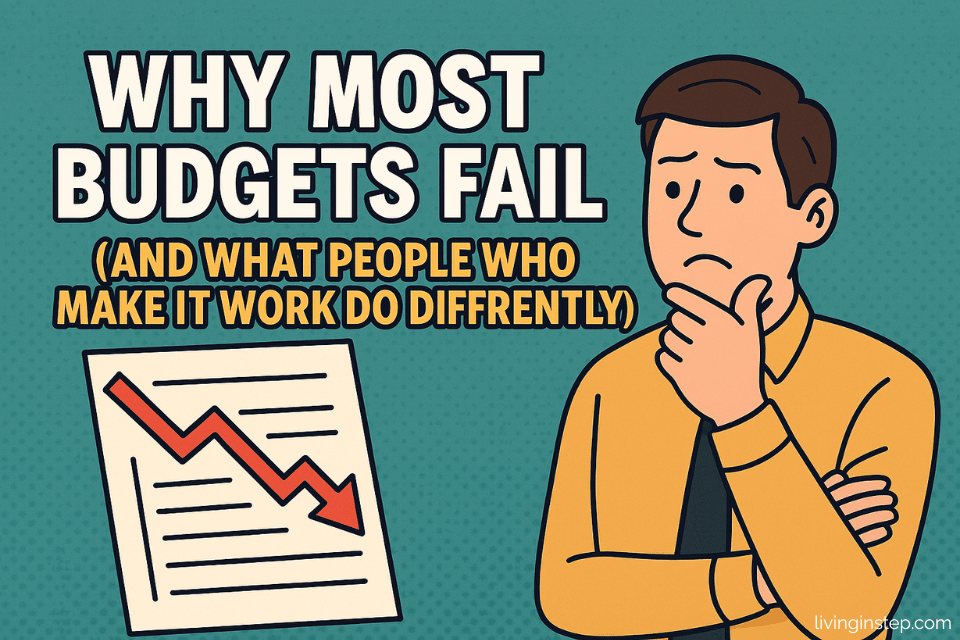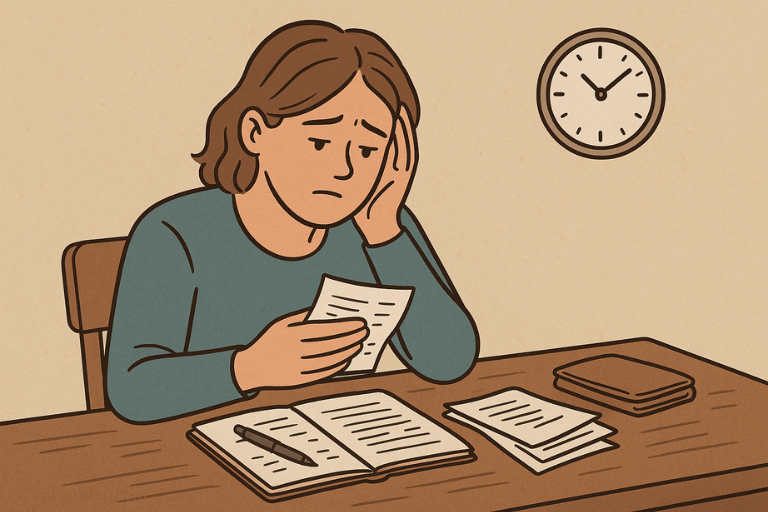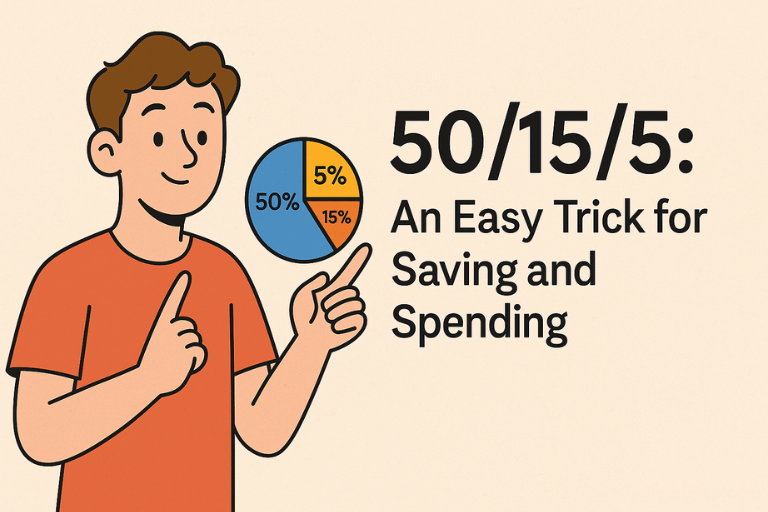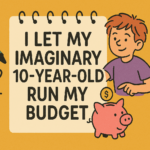Budgeting gets a lot of airtime.
Every financial “how-to” starts there.
Set up a budget. Stick to it. Adjust as needed. Done.
But here’s the thing: most people who start budgeting… don’t stick with it.
They burn out
Overwhelm sets in
Tracking becomes a huge bore
And before long, the whole thing quietly fades into the background
And it’s not because they’re lazy
Or undisciplined
And they are definitely serious
It’s usually because of how budgeting is introduced in the first place
Most budgets fail because they’re built like punishment
Spend less.
Cut more.
Track every move.
And don’t you dare forget that latte.
People don’t bail on budgeting because they don’t care
They bail because it starts to feel like a constant reminder of what they can’t do
And once that feeling sets in, the budget becomes a burden
Not a tool
You ever had a moment where you thought,
“This would probably work… if I didn’t hate doing it”?
That’s not a lack of discipline. That’s a signal.
Something’s off. And it’s probably not you.
So what do people who do make it work actually do?
They don’t follow the rules perfectly
Never obsess over spreadsheets
And most of the time, their budget doesn’t even look like a “budget”
But they do one thing differently:
They build it around their life—not their guilt.
They don’t try to cram their personality into a rigid framework
They adapt the framework to match how they already live
And that shift changes everything
Let’s talk about that for a second…
Right around now, you might be thinking:
“Okay. So it’s not about being strict—got it.”
But that’s not exactly it.
Because if this was just about being more flexible, the answer would be easy.
The real difference isn’t just structure vs. no structure.
It’s that people who make budgeting work understand why they’re doing it.
They don’t just follow numbers—they follow priorities.
They ask:
“What do I want to protect?”
“What do I want to avoid?”
“What makes me feel calmer at the end of the month?”
And then they build around that.
They don’t track everything—they track what matters
Maybe they’re only watching fixed expenses
Or maybe just what they call “chaotic money”—the stuff that disappears fastest
Either way, they know their budget doesn’t need to impress anyone
It just needs to give them answers
They budget for fun—on purpose
This is a prime example
People who actually stick with budgeting include spending they enjoy
They give it a name
They put it in the plan
And they make sure there’s enough space for it
There’s no trick
It’s not a reward
Just being real
Because if your budget doesn’t make room for a real life—you’ll eventually stop living by it
They allow for things to go wrong without giving up
Flat tire? Extra bill? Overspent the weekend?
They don’t see it as failure
They just adjust
No head slapping
Nothing to be ashamed of
Just “what do I need to shift now?”
That response is what builds consistency—not perfection
Final thought
Most people don’t stick with budgets because they feel restrictive
But people who make it work?
They’re not better with money. They’re just better at making the budget fit their life—not the other way around.
It’s less about what gets cut
More about what gets protected
That’s the real difference
And once you start thinking that way, the rest of it feels a whole lot lighter
Note: This content is for entertainment purposes only and is not financial advice. Please consult a qualified financial advisor for guidance specific to your situation.








